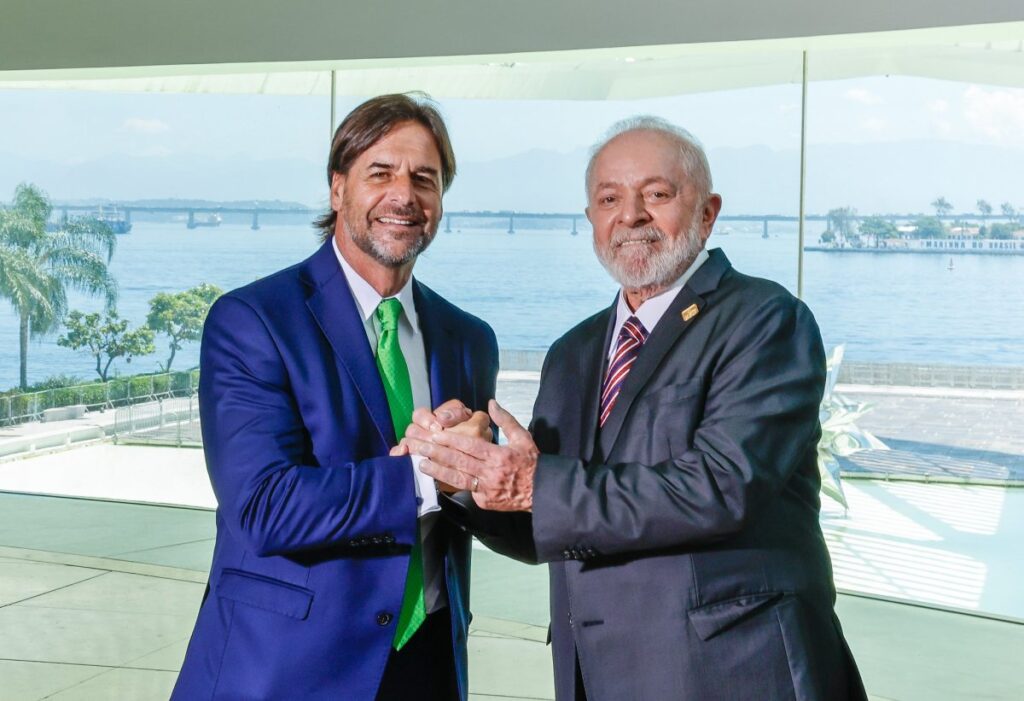Since China's transformation in the 1970s, which brought about the so-called “economic miracle” that lifted millions of Chinese out of poverty, the country has been deepening its economic and trade ties with all parts of the world, including Mercosur, the South American trading bloc made up of Argentina, Brazil, Paraguay and Uruguay. Mercosur has followed this trend since its creation in 1991, especially since China joined the World Trade Organization in the first decade of the 21st century.
In addition to the structural changes and challenges the Chinese economy is currently facing, the impact of the COVID-19 pandemic has also meant that China is also feeling the effects of the ongoing trade war (a rather geopolitical one) initiated by the U.S. In any case, the International Monetary Fund is forecasting Chinese economic growth of just over 4% in 2024, and China's first quarter indicators are very encouraging.
China currently accounts for 18% of global GDP and is the world's largest exporter, accounting for 14% of total exports and 11% of global imports. China also accounts for a similar proportion of global investment. In less than two decades, China is a technological powerhouse that has become a major supplier of cutting-edge technology to dozens of countries around the world, including Mercosur member states.
China's relations with Latin American countries have gone through several stages, strengthening in the 1990s and especially in the 2000s through trade in raw materials, which has been favorable for the economic growth of Latin America as a whole.
Over the years, as the composition of China's production changed, it began to send large quantities of manufactured goods to Latin American markets, first light industries such as textiles, and later high-tech exports. Today, China is either the first or second largest trading partner for almost every country in the region.
Recommendation
In recent years, it has expanded its ties with the region, signing free trade agreements with Latin American countries such as Chile in 2005 and Peru in 2009, followed by Costa Rica in 2010, and Ecuador and Nicaragua in 2023. At the same time, the agenda has expanded beyond trade to include increased investment and cooperation, as well as business partnerships, in a variety of areas, including politics, science and technology, international security and sustainable development.
As for Mercosur, trade data shows that China's bilateral trade in goods with the bloc will exceed $210 billion in 2023. The balance of payments is also heavily in favor of South American countries, with a total surplus of more than $50 billion, mainly due to Brazil's strong economic performance. From 2004 to 2023, China-Mercosur goods trade is expected to grow at an annual rate of 14%, compared to 9% between China and the world.
Mercosur member countries account for a small percentage of China's total exports to and imports from the world (2.3% and 5.2% in 2023, respectively), but these percentages have been steadily increasing in recent years. South American countries account for a large share of China's total purchases from the world, including beef, soybeans, soybean oil, minerals, corn, sugar, leather, coffee, and pulp. The potential for trade in services, which is still in its infancy, must also be considered.
A new opportunity for dialogue
In relations with China, MERCOSUR member states focus on bilateral strategies, with Brazil naturally taking a leading role alongside the Asian country due to its presence in the BRICS bloc. Both Brazil and Argentina have long maintained a “comprehensive strategic partnership” with China, the highest category of foreign relations that China grants to countries, which Uruguay also achieved in 2023. MERCOSUR’s remaining full member, Paraguay, is one of the few countries in the world that has diplomatic relations with Taiwan. Meanwhile, Venezuela is suspended from MERCOSUR, and Bolivia has yet to complete the domestic procedures to be considered a full member.
At the bloc level, the Mercosur-China Dialogue, launched in 1997 at the initiative of Uruguay, has held six meetings so far, the most recent in 2018. The dialogue has not shown dynamism or consistency in its functioning due to diverging approaches and interests regarding relations with China among the bloc's partners. In this sense, from a political and cooperation point of view, Mercosur member states only have a forum with China and the Community of Latin American and Caribbean States (CELAC), which they share with other Latin American countries outside the bloc.
Recommendation
Once again, Uruguay is a member of the bloc that, through the current government of President Luis Lacalle Pou, has proposed the need to advance an FTA between Mercosur and China, although attempts were also made under the government of former President Tabare Vásquez (2015-2020), but in the end no agreement was reached between the partners in the integration process.
As a result, Uruguay defended a strategy of making Mercosur more flexible in order to seek to conclude its own bilateral FTA with China, carrying out a feasibility study to be concluded in 2022. Uruguay's position, which is not without controversy, was partly supported by the Brazilian government of Jair Bolsonaro (2019-2022), but was strongly questioned at the time by Argentina and, to a lesser extent, Paraguay. The change of government in Brazil in 2023, with Luiz Inacio Lula da Silva's traditionally protectionist leanings, makes this possibility even more difficult.
Uruguay will assume the interim six-month presidency of Mercosur in late 2024 and once again aim to restart dialogue between Mercosur and China, but this time with the aim of prioritizing the conclusion of a trade agreement with the Asian country.
The change of government in Argentina, under the leadership of its new President, Javier Milley, who has made his ideological and political stance clear, opens new possibilities for Mercosur to once again discuss the need for the group to counter China's economic and commercial power, either jointly or through bilateral relations. It would be a strategic mistake and highly irresponsible for Mercosur not to do so at this point.
\”,\”body\”:\”\”,\”footer\”:\”\”},\”details\”:{\”header\”:\”\\r\\n\”,\”body\”:\”\”,\”footer\”:\”\”}}”,”gdpr_scor”:”true”,”wp_lang”:”_en”}; /* ]]> */
Source link



